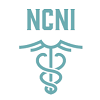Treatment for Headaches in LA
Headaches are defined as pain felt in the front, back, sides and the neck-region of the head. There are more than 150 different types of headaches, each accompanied by various symptoms and causes.
Identifying the type of headache is important as it helps doctors devise a treatment plan accordingly. According to the World Health Organization, nearly half of the global adult population experiences a headache at least once a year.
The most common symptoms of headaches are emotional distress, stress, or medical disorders such as high blood pressure, migraines, depression or anxiety. Depending on the severity and frequency of headaches, it can be difficult for people to attend school or work regularly.
Headaches can occur in one part of the head or on both sides, depending on the cause. They are divided into two main categories: primary and secondary headaches. Primary headaches are caused by problems with pain-sensitive structures in the head. This includes the muscles, nerves in the neck or head, and blood vessels.
Secondary headaches, unlike primary headaches, occur due to an underlying symptom i.e. they are attributed to a different cause. Factors responsible for secondary headaches include dehydration, blood clots, brain tumor, concussion, stroke, panic attack, influenza, and more. Secondary headaches can also worsen with time and be accompanied by other symptoms including fever and confusion. In such cases, immediate medical attention is necessary.
Common types of headaches include Migraine, Tension, and Cluster headaches, Paroxysma Hemicrania, and Hemicrainia Continua.
Common ways of treating a headache are pain relief medication and to get plenty of rest. Doctors usually prescribe preventive medication such as anti-epileptic drugs, antidepressants, and serotonin. Alternative treatment methods include acupuncture, hypnosis, cognitive behavior therapy, and nutritional and herbal products, although almost all of these lack scientific research.
